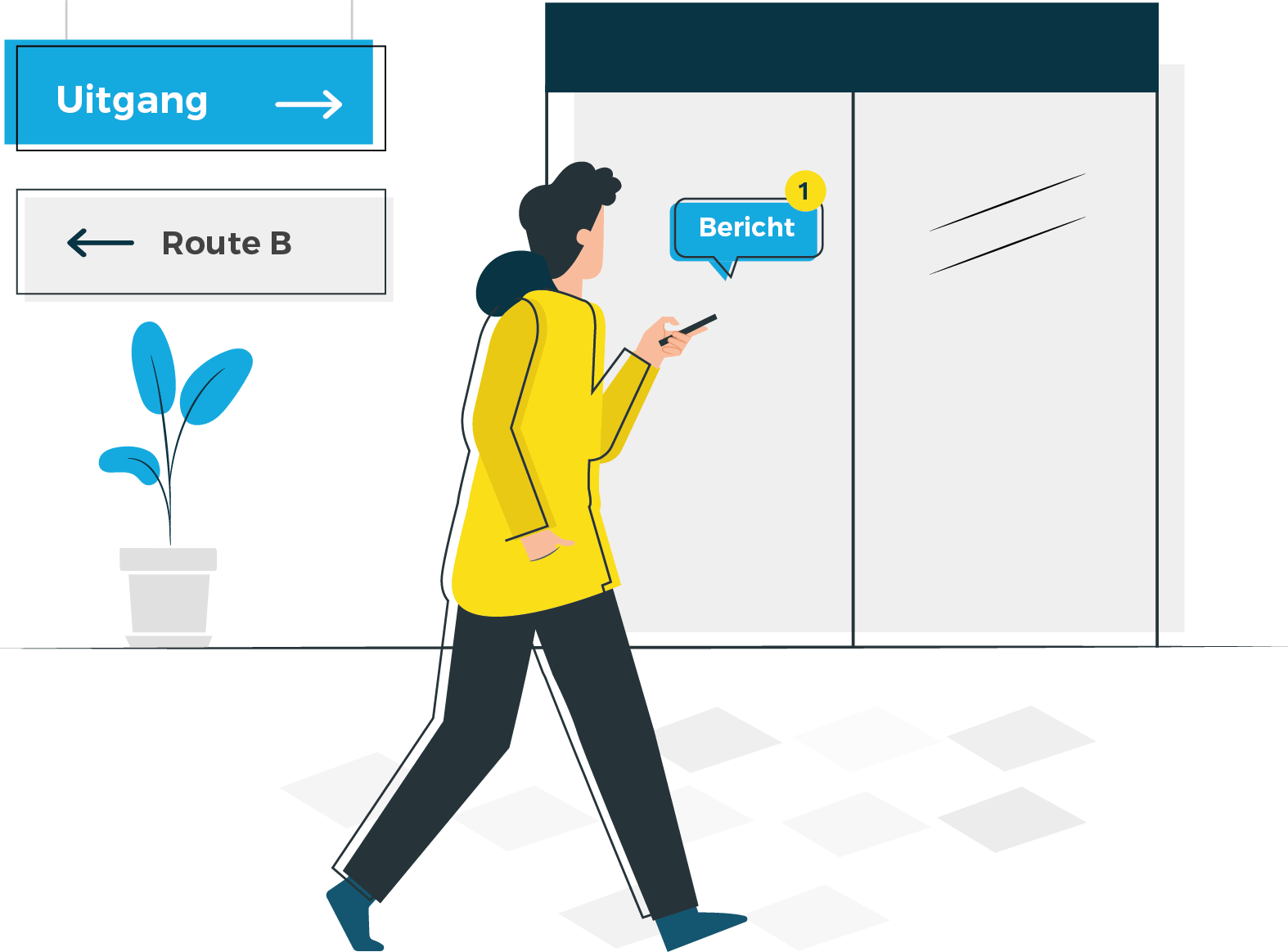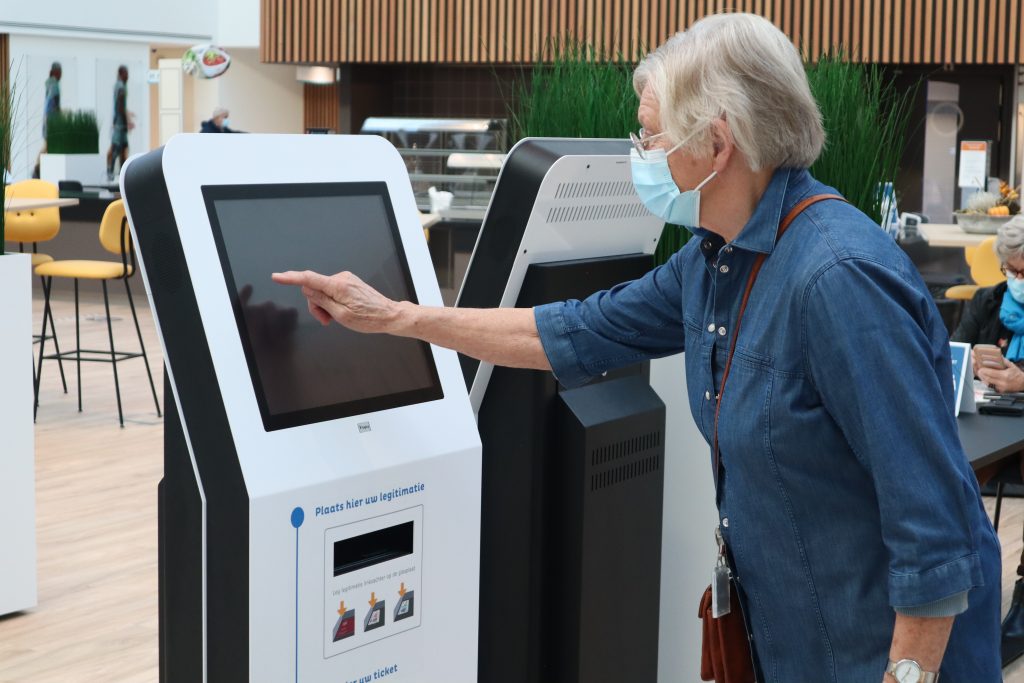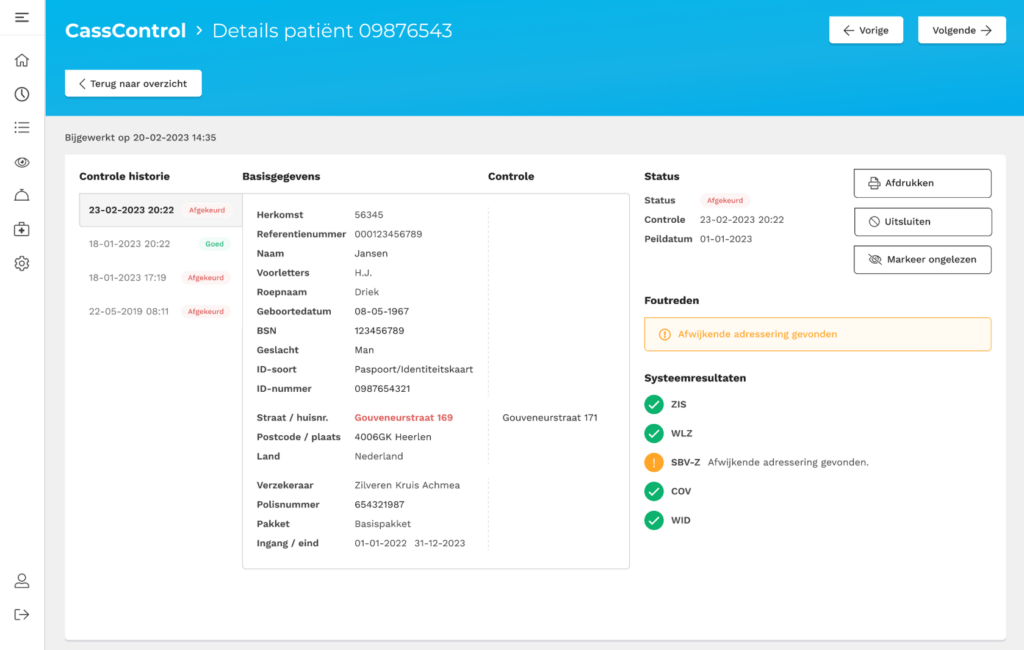VISITORS JOURNEY
Follow-up
Multiple appointments and minimised waiting times
Once the appointment is over, the patient will usually go home, and it is possible to automatically collect the necessary management information. It also routinely happens that the patient or visitor has more than one appointment scheduled on any given day or is referred to other specialists or functional visits (such as blood tests and radiology). To manage those instances, the system incorporates an advanced algorithm to set the appointments in a way that reduces waiting times. By making use of the queue management solution, it is also possible to take follow-up appointments into account in the case of an open consultation system. The system applies a prioritisation process once it recognises that the patient has follow-up appointments on the same day.

Combination Appointments (JITRA)
The biggest challenge, in the case of multiple appointments on any given day, is to mutually synchronise multiple agendas. A change to or disruption of one of the appointments due to, for example, delays or downtimes has a major impact on subsequent appointments and the staff concerned. JITRA is a solution for the effective and optimal management of combination appointments. A smart algorithm in the system determines the optimal order of appointments on the applicable day based on the actual availability of resources, such as the therapist, space and equipment. In departments that frequently deal with combination appointments, such as cardiology/cardiovascular diseases, it is possible to treat up to 25% more patients by eliminating unnecessary waiting with JITRA.
Queue Management
Queue Management offers functionality to support the visitor flow in unplanned healthcare processes. Upon arrival, the patient or visitor checks in at the digital check-in point, receives a number and is subsequently called in the applicable order. An important benefit of this procedure is that the patient’s data are checked and, where applicable, follow-up appointments are also tracked. This makes it possible to adjust the prioritisation when someone with a follow-up appointment checks in. If used in combination with Smart Appointment, it is also possible to regulate the influx in the case of open consultations.
Management Information
The fact that the entire visitor’s journey is digitally supported means that it is possible to monitor the entire process. The process can then also be adjusted based on the correct data, making sure that the visitor’s experience and staff deployment can be optimised. The control information consists of current (live) management information used to monitor standards and KPI’s. This information thereby enables simple adjustments in the case of, for example, long waiting times. It also gathers information that makes it possible to periodically retrieve relevant data concerning the progress of the processes. It is then possible to implement improvement actions based on the control information.
By setting up the entire patient journey in a digital manner, you can monitor the entire process. With the correct data at hand, you can then adjust the process to improve patient experience and staff deployment.
More integrations
 More information
More information
Would you like to find out more about how our solutions work and what their functionalities can do for your organisation? Please submit your details, and one of our professionals will contact you as soon as possible.

RKZ Beverwijk opts for Agile implementation by Logis.P Universe
The Rode Kruis Ziekenhuis Beverwijk (RKZ) has put the new Logis.P Universe platform in commission. Improved digital information points, in combination with future-proof software contribute towards further easing the pressure on healthcare logistics and administrative tasks. The Rode Kruis Ziekenhuis receives approximately 180,000 polyclinic visits a year.

RKZ Beverwijk opts for Agile implementation by Logis.P Universe
The Rode Kruis Ziekenhuis Beverwijk (RKZ) has put the new Logis.P Universe platform in commission. Improved digital information points, in combination with future-proof software contribute towards further easing the pressure on healthcare logistics and administrative tasks. The Rode Kruis Ziekenhuis receives approximately 180,000 polyclinic visits a year.



